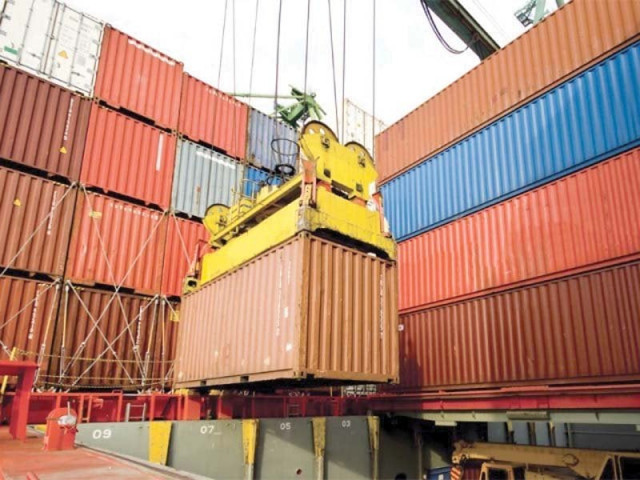Govt manages the real economy, but challenges remain
Managing external financing, increasing exports will be biggest issues for upcoming govt

Managing external financing, increasing exports will be biggest issues for upcoming govt
PHOTO: REUTERS
Average gross domestic product (GDP) growth remained around 4.7% over this period along with a benign inflation. Fortuitously, international crude oil prices played a pivotal role in reducing inflation. However, there are certain positives and negatives of the Pakistani economy.
On the positive front, the real economy has started to show signs of broad-based recovery. Agriculture, industrial and services sectors have performed well in the last two years since energy situation has improved a lot.
Credit goes to the current dispensation in improving this situation a great deal. A lot of generation capacity has been added to the electricity system along with extension in the transmission network, though the problem of line losses and bill recovery remains. Similarly, the shortage of gas has been addressed through re-gasified liquefied natural gas (RLNG).
Budget 2018-19: As non-filers barred from purchasing new vehicles, auto sector set for a surprise
Another major positive is the restoration of business confidence to some extent. Improvement in the energy situation has played a significant role in this regard.
On top of that, law and order situation has gradually improved across major cities. It is hoped that local and foreign investors would complement each other in the years to come since projects related to the China-Pakistan Economic Corridor (CPEC) will roll out in due course.
On the taxation front, the performance remained better given the constraint of the narrow tax base. It is evident that the tax base is narrow, which is quite usual in developing economies, and it requires gradual and consistent efforts on the part of successive governments.
The government has at least tried to rein in tax evaders through withholding tax on their bank transactions.
In addition, the Federal Board of Revenue (FBR) introduced new valuation tables related to property across many cities which, in turn, increased tax collection manifold. This also helped to minimise speculation in property transactions.
On top of that, there is a suggestion that only tax filers can buy property starting July 2018. This step would go a long way in improving the tax-to-GDP ratio in the country.
However, this is easier said than done. These steps are not easy for a political government since such moves hurt its voters a great deal.
Budget 2018-19: Focus is more on voters rather than economy
On the export front, the government has faced a lot of challenges since it came to power. On the international front, the prices of many commodities went down, which pushed down the absolute value of exports.
Starting 2017, the government introduced an export package to compensate the exporters who had started to feel the pinch of stable rupee-dollar parity. The announcement of this package acted as a pain reliever for a crying patient.
On the external financing front, the government followed the trail blazed by the successive governments. Every government approaches the International Monetary Fund (IMF) to ease the balance of payments constraint.
During the tenure of former president Pervez Musharraf, the government opted for an IMF programme. Similarly, Pakistan Peoples Party went for a standby loan from 2008 to 2011. And the Extended Fund Facility of the IMF from 2014 to 2016 was not an exception in this regard.
Now the ground is set for the upcoming government to negotiate a new IMF programme.
Along with the IMF programme, the government tapped the international debt market a couple of times and even took expensive short-term commercial loans to bolster foreign exchange reserves. All these external financing arrangements helped the economy to grow fast.
In a nutshell, the political dispensation performed well on the real economy side. However, it adopted a conventional approach to manage the external financing front. The biggest challenge for the upcoming government would be the composition of exports, which could not fetch precious foreign exchange.
Given this, the management of external financing would remain tricky for the upcoming government.
The writer is an Assistant Professor of Economics at SDSB, Lahore University of Management Sciences (LUMS)
Published in The Express Tribune, April 30th, 2018.
Like Business on Facebook, follow @TribuneBiz on Twitter to stay informed and join in the conversation.



















COMMENTS
Comments are moderated and generally will be posted if they are on-topic and not abusive.
For more information, please see our Comments FAQ